posted 20th January 2025
உறவுகளின் துயர் பகிர்வு

Image by Engin Akyurt from Pixabay
காப்பி எதிர்வினை நேரத்தை பாதிக்கிறதா?
உலகின் மிகவும் பிரபலமான பானங்களில் ஒன்றான காப்பி, மக்களை விழித்திருக்கவும், விழிப்புடன் வைத்திருக்கவும் உதவும் திறனுக்காகப் பெயர் பெற்றது. ஆனால், அது உண்மையில் எதிர்வினை நேரத்தை அதிகரிக்குமா என்பதுதான் இன்றைய கேள்வியாக உள்ளது? காப்பியின் மூலப்பொருளானதும், முதன்மையான செயல்பாட்டிலுள்ளது காஃபெயினானது மத்திய நரம்பு மண்டலத்தைத் (central nervous system) தூண்டுகிறது.
உடலிலுள்ள பல இழையங்களினால் உருவாக்கப்படும் ஒரு நரம்பியக்கடத்தியான அடினோசின் எனும் இரசாயனப் பொருளானானது ஒருவரை சோர்வு நிலைக்குக் கொண்டு செல்லும் தன்மை வாய்ந்தது. காப்பியிலுள்ள காஃபினானது அடினோசின் எனும் இரசாயனப் பொருளின் இயக்கத்தினை தடுக்கின்றது. இதனால், டோப்பமின், நோர்எப்பினெப்பிறின் போன்ற பிற நரம்பியக்கடத்திகளின் வெளியீட்டினை அதிகரிக்கிறது. அத்துடன் விழிப்புணர்வையும், கவனத்தையும் மேம்படுத்துகிறது. இதனால், கஃபெயினானது விரைவான எதிர்வினை நேரங்களை உருவாக்கி தகவல்களினை வழங்குவதில் மூளையினைத் துரிதமாக்கப்படுகின்றது.
ஒரு சில ஆராய்ச்சிகளானது அண்ணளவாக 200 மி.கி அல்லது கிட்டத்தட்ட இரண்டு கப் காப்பியானது எதிர்வினை நேரத்தை மேம்படுத்துவதுடன், மன, உடல் சுறுசுறுப்பினையும் அதிகரிக்கும் என்று கூறுகின்றது. இவ்வாறான செயல்பாடானது ஒருசில செயல்பாடுகளுக்கு நன்மையினை தருகின்றது.
இவ்வாறு பலவிதமான நன்மைகளை கஃபெயினானது கொண்டுருப்பதனால் அவை எல்லோராலும் விரும்பப்படுமென்றல்ல. இவ்வாறான காப்பியின் விளைவுகளினை அப்பப்போது பலர் சகித்துக் கொள்வதானது அவரவர்களின் மரபணுக்களில் தங்கியுள்ளது. ஆனால், அதிகமாக காப்பி குடிப்பவர்களுக்கு சில சமயம் நடுக்கத்தினை உருவாக்கலாம்.
எனவே, காப்பியானது பலவிதமான நன்மைகளைத் தருகின்றதென்பதனால் அதனை கூடிய அளவில் உட்கொள்வது நல்லதல்ல.
Does Coffee Affect Reaction Time?
Coffee, one of the world’s most popular beverages, is renowned for its ability to keep people awake and alert. But does it actually enhance reaction time? The answer lies in caffeine, coffee’s primary active ingredient, which stimulates the central nervous system.
Caffeine works by blocking adenosine, a neurotransmitter responsible for making us feel drowsy. As a result, it increases the release of other neurotransmitters like dopamine and norepinephrine, which heighten alertness and improve focus. These effects can translate into quicker reaction times, as the brain processes information and responds to stimuli more efficiently.
Research supports this claim. Studies have shown that moderate doses of caffeine—around 200 mg or roughly two cups of coffee—can improve reaction time in tasks requiring both mental and physical agility. This is particularly beneficial for activities like driving, gaming, or sports, where split-second decisions are crucial.
However, the effects of caffeine are not universal. Factors such as tolerance, age, and overall health play significant roles. Regular coffee drinkers may experience diminished effects due to tolerance, while excessive consumption can lead to jitteriness, which might actually impair reaction time. Additionally, caffeine’s effects vary among individuals due to genetic differences in caffeine metabolism.
In conclusion, coffee can enhance reaction time, but its impact depends on individual factors and consumption habits. To maximize benefits, it’s best to consume caffeine in moderation and be mindful of its potential downsides. So, the next time you need to stay sharp, a cup of coffee might just do the trick!

















